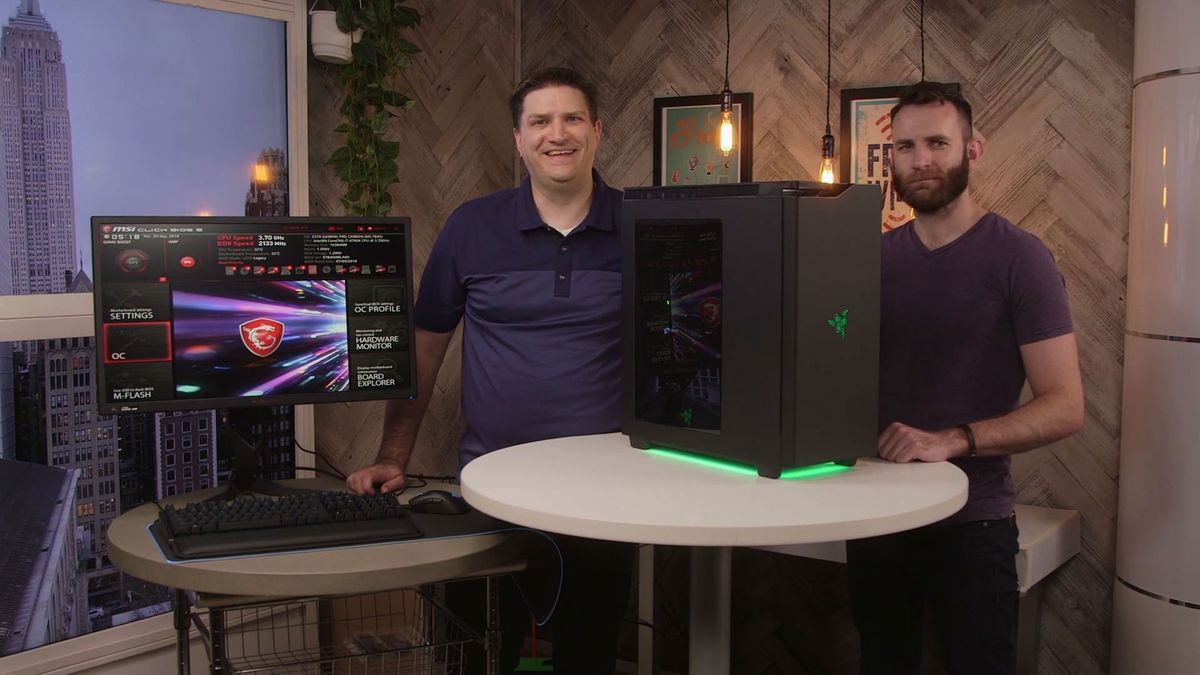Here's a copy of a post I made here 3 years ago, most still relevant:
I was going to have to build a pc
That's not true, take a look in the
System Building forum, eg these threads:
PC build for Skyrim and FlightSimulator2020
What is a good Gaming PC to buy?
You might be better off buying your first PC and maybe build your next one—unless you're already generally handy at building things and following instructions carefully.
How exactly do system requirements work?
Most System Requirements for games are understated, especially the minimum—so assume you'll need the 'Recommended' settings or better.
Where do I start exactly?
Do a search for…
"how to build a gaming pc"
…and read some articles or watch some videos, just to get an idea of the scope of the task. Here's a good PCG article/video to start with:
How to build a gaming PC
"
easy walkthrough to building a PC for the first time, with a video showing each step of the process"
I usually have trouble understanding which graphics card is better than the other and whether or not it would work
Me too

I've built maybe a dozen PCs over the years, but each time I have to do the research to find out what's the current state of play for the components. I can spend a month researching, a week buying, and a day building.
How hard is it to actually build the PC?
It's all assembly work, so each individual task is relatively simple—you won't be grinding metal or cutting wood—but there are a lot of them. You might get by with only a Phillips screwdriver and an anti-static wristband or mat as your only tools, but if you can get a toolbox, do so—I can guarantee you'll need a tweezers at some stage

Put aside a weekend for the project, in case you need to troubleshoot. If all goes well, you could be done in 3-4 hours. A large table with good lighting, which won't be attacked by toddlers or pets

A tray with compartments is also very useful for keeping all the different fiddly bits organized.
The main difficulty is in the planning stage, making sure the parts meet your needs, that the parts will work together and also physically fit together, and that the overall system is balanced—ie that one part doesn't cause a bottleneck.
Tips:
A. Use PCpartPicker.com—it'll protect you from choosing incompatible case, motherboard, CPU and RAM.
B. Don't build all in one go—test as early as you can, and 2-3 times more before you tighten all the screws.
C. Keep it simple first time—eg don't go for water cooling or fancy stuff like RGB.
D. Use something anti-static, eg wrist-strap or floor mat.
E. Do whatever you can to minimize heat & dust—heat is THE big enemy, and dust increases it. Keep cables out of the airflow, and make sure your fans are working together, not against each other.
Carpeted floor is the worst spot to place your PC, due to all the dust kicked up—at least put it on some risers to get it 2-3 inches up off it. High on your table/desk is probably the cleanest.
Cleaning regularly is good, frequency depending on environment. I only do mine once a year as it's on my desk and we don't have hair-shedding pets.
on decent settings, what do you think the costs for that PC would be?
Depends if you'll need everything, or just the main box. Excluding monitors, mouse, mouse mat, wrist rest, keyboard, backup drive, UPS, USB hub, Windows… my wild guess is $1,000 - $1,200. I'm not up to date with current prices, so wait for someone else for a better estimate.
That's assuming "decent" means just that, and not maxed out on everything—that'll cost you a fortune with the prices of GPUs and CPUs these days. Btw it's not a great time to go PC, the demand has risen this year with all the home working so prices have gone up a bit.
I always buy one step behind the current CPU & GPU, that's where the sweet spot is for price v performance—eg get 80% of the performance for 60% of the price. However, the latest GPUs look to have quite a big jump in performance over previous, so that'd need some analysis to figure out.
Other Considerations
A main benefit of building for me, apart from learning, is I can fit my needs. Eg audio doesn't matter to me, so I don't need a separate audio card—the audio built into the motherboard is good enough. I use my PC for work also, so stability is important—therefore I don't overclock, so I don't need components which support overclocking [overclocking is manually tinkering to boost CPU and maybe GPU performance]. That saves me money and heat! So think along such lines, saving in one area and splurging in another.
You need a SSD for your system disk, and I advise one for your games disk too if you can afford it. If you plan to store a lot of media—photos, videos, music—then get a large cheap HD also. I have 256GB SSD system, 1TB SSD games, 4TB HD storage.
16GB RAM should be enough for gaming over the next few years.
Get known-good brands for motherboard, power supply, RAM and GPU.
Select your CPU brand first—AMD or Intel, AMD seems on top at the moment—as that dictates which motherboards will work.
If you're a big guy, you won't enjoy a small case—very finicky to work in.
Good luck






